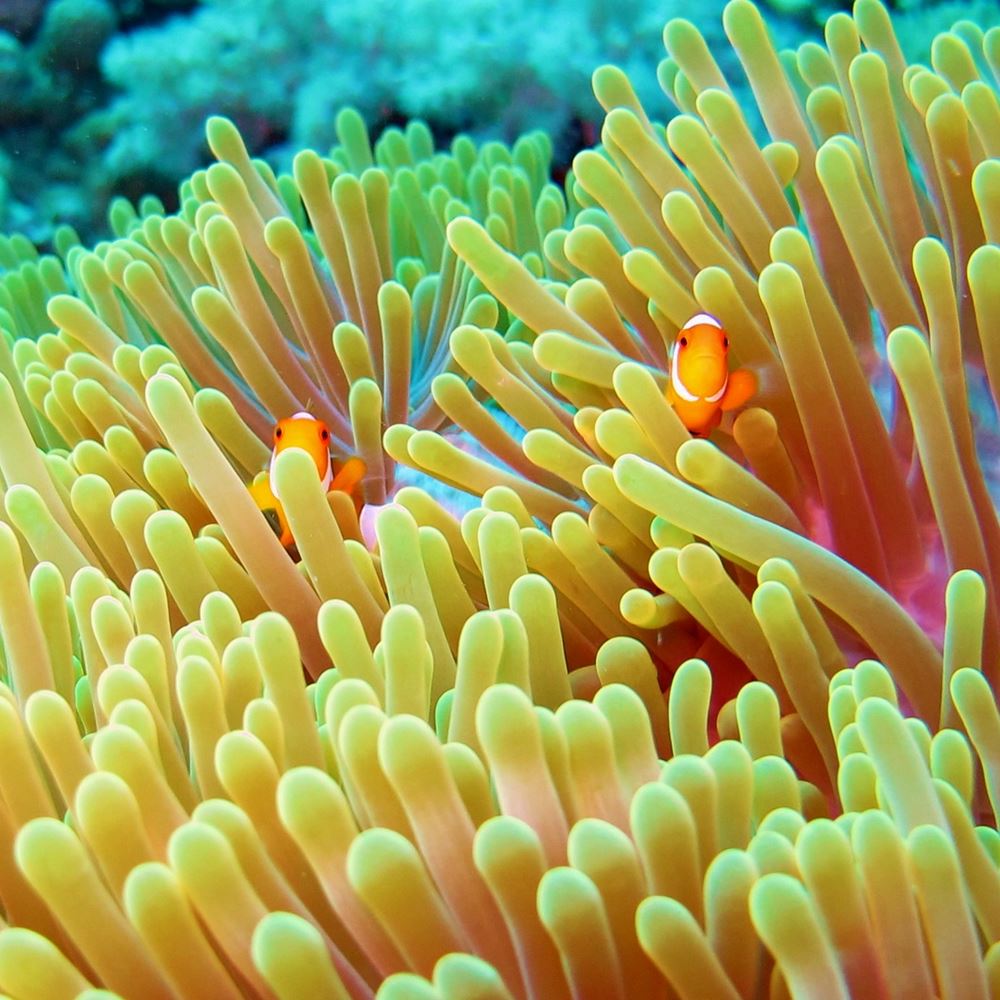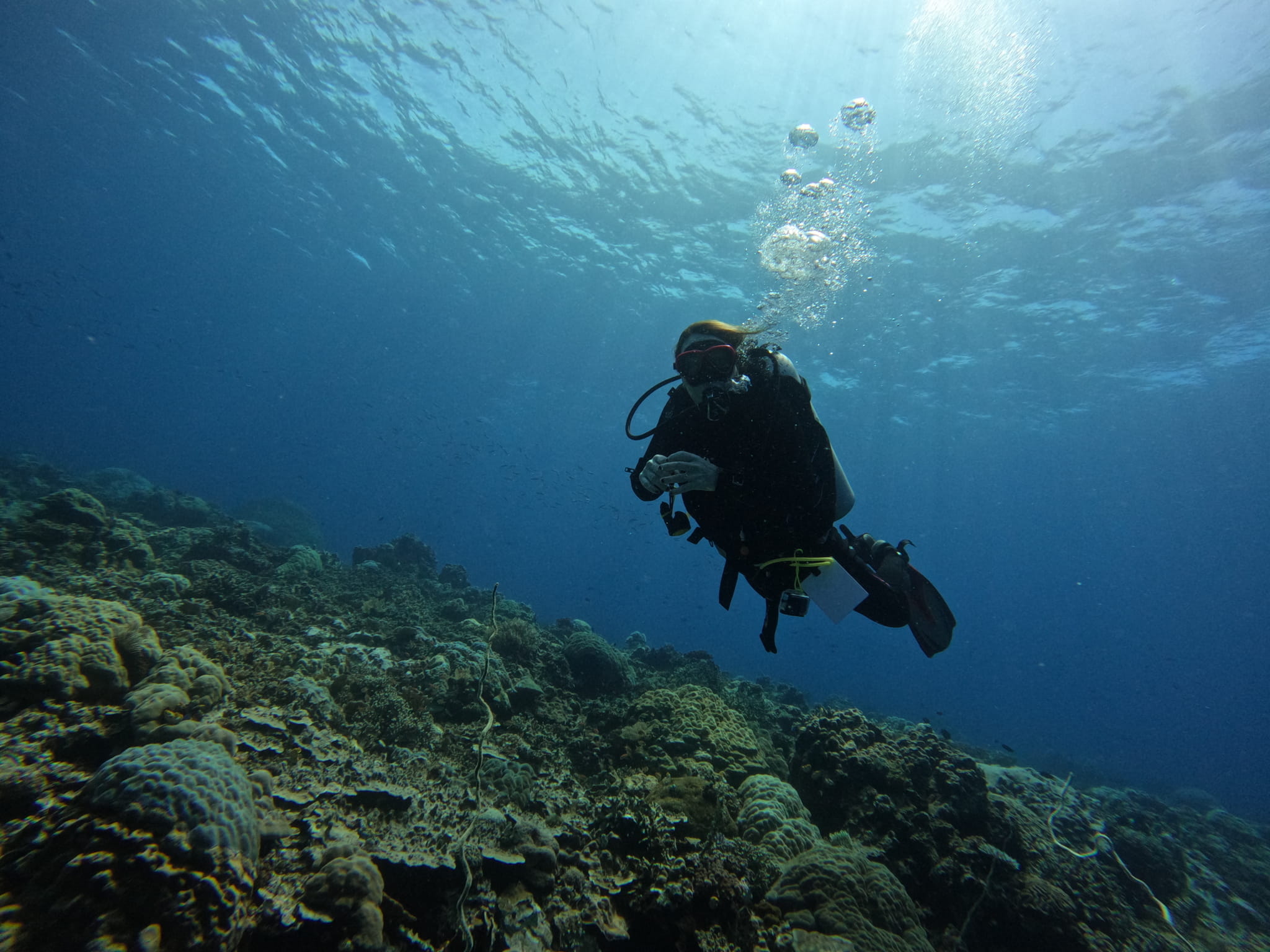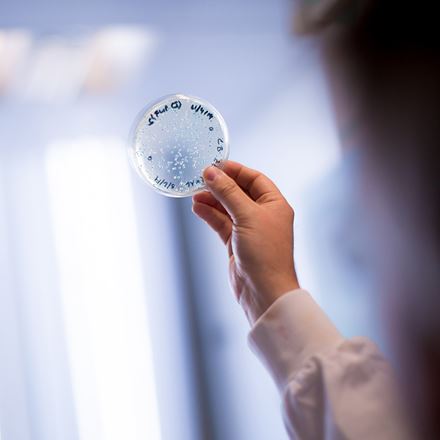Ecology and Environmental Microbiology Group

Global biodiversity and by association ecosystem functioning is changing rapidly in response to changes in environmental and climatic conditions.
Understanding the ecological mechanisms behind these changes and providing clear management and policy recommendations are among the great challenges of the 21st century.
We address these challenges across all levels of biological organisation (from genes to ecosystems) and across taxonomic groups (from microbes to macro-organisms), focussing on four broad themes:
- Biodiversity (including microbial)
- Climate and environmental change
- Biogeochemical cycling
- Environmental biotechnology
Our research benefits society in the areas of conservation and sustainable use of living resources and their habitats, assessment of anthropogenic impacts on the environment, and detection and remediation of pollution.
Studentships
Our work
Our impact



Explore



Our activity
Selected papers - 2022
- Sing Wong, Amy and Vrontos, Spyridon and Taylor, Michelle (2022) 'An assessment of people living by coral reefs over space and time.' Global Change Biology. ISSN 1354-1013
- Bohmann, Kristine and Elbrecht, Vasco and Carøe, Christian and Bista, Iliana and Leese, Florian and Bunce, Michael and Yu, Douglas W and Seymour, Mathew and Dumbrell, Alex J and Creer, Simon (2022) 'Strategies for sample labelling and library preparation in DNA metabarcoding studies.' Molecular Ecology Resources, 22 (4). pp. 1231-1246. ISSN 1471-8278
- Clark, Dave R and McKew, Boyd A and Binley, Andrew and Heppell, Catherine M and Whitby, Corinne and Trimmer, Mark (2022) 'Hydrological properties predict the composition of microbial communities cycling methane and nitrogen in rivers.' ISME Communications, 2 (1). ISSN 2730-6151
- Ellis, Matthew B and Cameron, Tom C (2022) 'An initial assessment of the sustainability of waterbird harvest in the United Kingdom.' Journal of Applied Ecology. ISSN 0021-8901
- Gregson, Benjamin H and Bani, Alessia and Steinfield, Laurel and Holt, Diane and Whitby, Corinne (2022) 'Anaerobes and methanogens dominate the microbial communities in water harvesting ponds used by Kenyan rural smallholder farmers.' Science of the Total Environment, 819. p. 153040. ISSN 0048-9697
- Hoyal Cuthill, Jennifer (2022) 'Ediacaran survivors in the Cambrian: suspicions, denials and a smoking gun.' Geological Magazine, 159 (7). pp. 1210-1219. ISSN 0016-7568
- Kratina, Pavel and Rosenbaum, Benjamin and Gallo, Bruno and Horas, Elena L and O'Gorman, Eoin J (2022) 'The Combined Effects of Warming and Body Size on the Stability of Predator-Prey Interactions.' Frontiers in Ecology and Evolution, 9. ISSN 2296-701X
- López-López, Lucía and Genner, Martin J and Tarling, Geraint A and Saunders, Ryan A and O'Gorman, Eoin J (2022) 'Ecological Networks in the Scotia Sea: Structural Changes Across Latitude and Depth.' Ecosystems, 25 (2). pp. 457-470. ISSN 1432-9840
- Maxwell, Jamie and Taboada, Sergi and Taylor, Michelle L (2022) 'Gorgoniapolynoe caeciliae revisited: The discovery of new species and molecular connectivity in deep-sea commensal polynoids from the Central Atlantic.' Deep Sea Research Part I: Oceanographic Research Papers, 185. p. 103804. ISSN 0967-0637
- McKenzie, Morwenna and England, Judy and Foster, Ian and Wilkes, Martin (2022) 'Evaluating the performance of taxonomic and trait-based biomonitoring approaches for fine sediment in the UK.' Ecological Indicators, 134. p. 108502. ISSN 1470-160X
- McLean, Dianne L and Ferreira, Luciana C and Benthuysen, Jessica A and Miller, Karen J and Schläppy, Marie-Lise and Ajemian, Matthew J and Berry, Oliver and Birchenough, Silvana NR and Bond, Todd and Boschetti, Fabio and Bull, Ann S and Claisse, Jeremy T and Condie, Scott A and Consoli, Pierpaolo and Coolen, Joop WP and Elliott, Michael and Fortune, Irene S and Fowler, Ashley M and Gillanders, Bronwyn M and Harrison, Hugo B and Hart, Kristen M and Henry, Lea-Anne and Hewitt, Chad L and Hicks, Natalie and Hock, Karlo and Hyder, Kieran and Love, Milton and Macreadie, Peter I and Miller, Robert J and Montevecchi, William A and Nishimoto, Mary M and Page, Henry M and Paterson, David M and Pattiaratchi, Charitha B and Pecl, Gretta T and Porter, Joanne S and Reeves, David B and Riginos, Cynthia and Rouse, Sally and Russell, Debbie JF and Sherman, Craig DH and Teilmann, Jonas and Todd, Victoria LG and Treml, Eric A and Williamson, David H and Thums, Michele (2022) 'Influence of offshore oil and gas structures on seascape ecological connectivity.' Global Change Biology, 28 (11). pp. 3515-3536. ISSN 1354-1013
- Robinson, Sinikka I and O'Gorman, Eoin J and Frey, Beat and Hagner, Marleena and Mikola, Juha (2022) 'Soil organic matter, rather than temperature, determines the structure and functioning of subarctic decomposer communities.' Global Change Biology, 28 (12). pp. 3929-3943. ISSN 1354-1013
- Su, Min and Dell'Orto, Marta and D'Imporzano, Giuliana and Bani, Alessia and Dumbrell, Alex J and Adani, Fabrizio (2022) 'The structure and diversity of microalgae-microbial consortia isolated from various local organic wastes.' Bioresource Technology, 347. p. 126416. ISSN 0960-8524
- Underwood, Graham JC and Dumbrell, Alex J and McGenity, Terry J and McKew, Boyd A and Whitby, Corinne (2022) 'The Microbiome of Coastal Sediments.' In: Stal, Lucas J and Cretoiu, Mariana Silvia, (eds.) The Marine Microbiome. The Microbiomes of Humans, Animals, Plants, and the Environment, 3 . Springer International Publishing, pp. 479-534.
- Uttarotai, Toungporn and Sutheeworapong, Sawannee and Crombie, Andrew T and Murrell, J Colin and Mhuantong, Wuttichai and Noirungsee, Nuttapol and Wangkarn, Sunanta and Bovonsombut, Sakunnee and McGenity, Terry J and Chitov, Thararat (2022) 'Genome Characterisation of an Isoprene-Degrading Alcaligenes sp. Isolated from a Tropical Restored Forest.' Biology, 11 (4). p. 519. ISSN 2079-7737
- Whitworth, Paul and Aldred, Nick and Reynolds, Kevin J and Plummer, Joseph and Duke, Phillip W and Clare, Anthony S (2022) 'Importance of Duration, Duty-Cycling and Thresholds for the Implementation of Ultraviolet C in Marine Biofouling Control.' Frontiers in Marine Science, 8. ISSN 2296-7745
Selected papers - 2021
- Cordoleani, F and Phillis, CC and Sturrock, AM and FitzGerald, AM and Malkassian, A and Whitman, GE and Weber, PK and Johnson, RC (2021) 'Threatened salmon rely on a rare life history strategy in a warming landscape.' Nature Climate Change, 11 (11). pp. 982-988. ISSN 1758-678X
- Fell, Sarah C and Carrivick, Jonathan L and Cauvy-Fraunié, Sophie and Crespo-Pérez, Verónica and Hood, Eran and Randall, Kate C and Nicholass, Kirsty J Matthews and Tiegs, Scott D and Dumbrell, Alex J and Brown, Lee E (2021) 'Fungal decomposition of river organic matter accelerated by decreasing glacier cover.' Nature Climate Change, 11 (4). pp. 349-353. ISSN 1758-678X
- Clark, Dave R and Underwood, Graham JC and McGenity, Terry J and Dumbrell, Alex J (2021) 'What drives study-dependent differences in distance–decay relationships of microbial communities?' Global Ecology and Biogeography, 30 (4). pp. 811-825. ISSN 1466-822X
- Davey, Peter A and Power, Anne Marie and Santos, Romana and Bertemes, Philip and Ladurner, Peter and Palmowski, Pawel and Clarke, Jessica and Flammang, Patrick and Lengerer, Birgit and Hennebert, Elise and Rothbächer, Ute and Pjeta, Robert and Wunderer, Julia and Zurovec, Michal and Aldred, Nick (2021) 'Omics‐based molecular analyses of adhesion by aquatic invertebrates.' Biological Reviews, 96 (3). pp. 1051-1075. ISSN 1464-7931
- Ferguson, Robert MW and Neath, Charlotte EE and Nasir, Zaheer A and Garcia-Alcega, Sonia and Tyrrel, Sean and Coulon, Frederic and Dumbrell, Alex J and Colbeck, Ian and Whitby, Corinne (2021) 'Size fractionation of bioaerosol emissions from green-waste composting.' Environment International, 147. p. 106327. ISSN 0160-4120
- Ferguson, Robert MW and O'Gorman, Eoin J and McElroy, David J and McKew, Boyd A and Coleman, Ross A and Emmerson, Mark C and Dumbrell, Alex J (2021) 'The Ecological Impacts of Multiple Environmental Stressors on Coastal Biofilm Bacteria.' Global Change Biology, 27 (13). pp. 3166-3178. ISSN 1354-1013
- Gregson, Benjamin H and McKew, Boyd A and Holland, Robert D and Nedwed, Timothy J and Prince, Roger C and McGenity, Terry J (2021) 'Marine Oil Snow, a Microbial Perspective.' Frontiers in Marine Science, 8. ISSN 2296-7745
- Grydaki, Nikoletta and Colbeck, Ian and Mendes, Luis and Eleftheriadis, Konstantinos and Whitby, Corinne (2021) 'Bioaerosols in the Athens Metro: Metagenetic insights into the PM₁₀ microbiome in a naturally ventilated subway station.' Environment International, 146. p. 106186. ISSN 0160-4120
- McGenity, Terry J and McKew, Boyd A and Lea-Smith, David J (2021) 'Cryptic microbial hydrocarbon cycling.' Nature Microbiology, 6 (4). pp. 419-420. ISSN 2058-5276
- Rogers, Alex D and Baco, Amy and Escobar-Briones, Elva and Gjerde, Kristina and Gobin, Judith and Jaspars, Marcel and Levin, Lisa and Linse, Katrin and Rabone, Muriel and Ramirez-Llodra, Eva and Sellanes, Javier and Shank, Timothy M and Sink, Kerry and Snelgrove, Paul VR and Taylor, Michelle L and Wagner, Daniel and Harden-Davies, Harriet (2021) 'Marine Genetic Resources in Areas Beyond National Jurisdiction: Promoting Marine Scientific Research and Enabling Equitable Benefit Sharing.' Frontiers in Marine Science, 8. ISSN 2296-7745
- Scarlett, Kelly and Denman, Sandra and Clark, David R and Forster, Jack and Vanguelova, Elena and Brown, N and Whitby, Corinne (2021) 'Relationships between nitrogen cycling microbial community abundance and composition reveal the indirect effect of soil pH on oak decline.' The ISME Journal, 15 (3). pp. 623-635. ISSN 1751-7362
- Sohlström, Esra H and Archer, Louise C and Gallo, Bruno and Jochum, Malte and Kordas, Rebecca L and Rall, Björn C and Rosenbaum, Benjamin and O'Gorman, Eoin J (2021) 'Thermal acclimation increases the stability of a predator-prey interaction in warmer environments.' Global Change Biology, 27 (16). pp. 3765-3778. ISSN 1354-1013
Recent news
- From Life Science labs to exploring the ocean floor - specialist technician Russell Smart has revealed how his unique job at Essex sees him travel the world whilst helping shape the University's world-leading research. He explains all in our latest Technician Blog.
- King praises our students helping coastal defence project
- Graham's key role to protect our marine blue carbon habitats
- The University Of Essex Becomes a Partner of MASTS (Marine Alliance for Science and Technology for Scotland).
- Essex marine biologists part of major expedition to Galápagos
-
Louder than Words Podcast - Good Bugs Bad BugsTerry McGenity and Corinne Whitby join Jules Pretty (@JulesPretty1) to discuss the worlds of microbes in oceans, soils and air, and how they can be deployed in new ways to clean up pollution and improve the environment.
- As part of an EU Horizon-funded project, Dr Robert Ferguson will be working with local schools to assess the air quality children are exposed to, both in the classroom and on their journeys to and from school.
- Dr Michael Steinke will be part of an interdisciplinary Essex team attending COP27 to talk about their work on climate change, coastal erosion and the impact on Essex's oyster population.
- We're working to improve diversity through the Environmental Science Summer School, funded by the Natural Environment Research Council (NERC).
- Researchers from our group showcased their research at the Royal Society Summer Science Exhibition 2022, presenting Ocean Travellers to the public during this week-long event. You can also watch our Ocean Travellers video on Vimeo or Youtube.
- We are collaborating with the UK Government’s Centre for Environment, Fisheries and Aquaculture Science (Cefas) on training and research linked to aquatic ecosystems.
- Endurance: Shackleton's lost ship is found in Antarctic - Dr Michelle Taylor is quoted in this BBC news article on the discovery of Ernest Shackleton's lost ship Endurance. Michelle herself took part in an expedition to the Weddell Sea, including looking for the Endurance, in 2019.
- Essex ecologist to showcase shipwreck research to MPs
- Tom's work on restoring native oysters showcased by Nature - We're so pleased to see the great work by Dr Tom Cameron working with local oyster growers to restore native oysters in their natural habitat has been showcased on the Nature website.
- Podcast focuses on saving our seas - The latest episode of our Louder Than Words Podcast focuses on the threats to our seas and features Dr Michelle Taylor and Dr Natalie Hicks plus BBC presenter writer and BBC presenter Tom Heap. You can also read a blog by Dr Taylor and Dr Hicks.
- Dr Michelle Taylor is new President of Deep-Sea Biology Society
- Microplastics affect individual fish differently, study finds
- Salmon eyes may hold secrets of their survival … and decline
- Essex part of world’s largest coral restoration programme
School of Life Sciences
Funding and facilities
We have an extensive network of national and international collaborations through projects funded by UKRI (especially NERC, and also BBSRC, STFC and ESRC), the EU, and various foundations and stakeholders. We also have access to funded PhD studentships via the NERC ARIES doctoral training partnership.
We have also been involved in several responsive projects and many major large directed research programmes from NERC, including: Biodiversity and Ecosystem Service Sustainability, Environmental Microbiology and Human Health, INSITE, Emerging Risks of Chemicals in the Environment, Understanding Urban Soil Properties, Functions, and Below-Ground Inter-Connections.
Our research is supported by state-of-the-art laboratory and facilities infrastructure, which includes the latest molecular ecology facilities (e.g. ddPCR, NGS and robotic high-throughput liquid handling systems), analytical equipment (including new triple-quadrupole GC-MS, and ICP-MS). We have large-scale mesocosm and microbiological cultivation facilities, as well as access to the marine and freshwater environments via our group’s new research vessels.
Research degrees in Life Sciences
We have a vibrant postgraduate community, and are always keen to recruit new postgraduate research students (both PhD and Master of Science by Dissertation). Throughout the year we may have funded opportunities, such as PhD projects funded by NERC ARIES Doctoral Training Partnership.
Please feel free to contact individual group members if you are interested in postgraduate research or applying for postdoctoral fellowships. Many of our academics maintain lists of project areas that they are happy to supervise, and will be able to help you narrow down a research topic.







